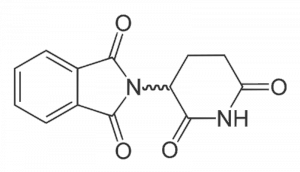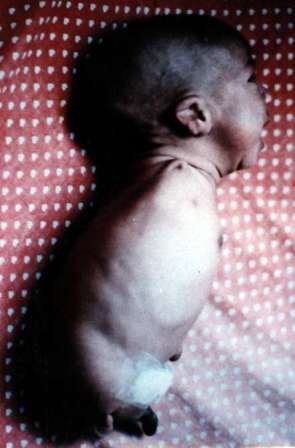Thalidomide

Drug originally developed as a hypnotic and sedative in the treatment of insomnia, sleep disorders, psychomotor agitation and anxiety, but because it was effective in reducing morning sickness, a paradoxical effect, it ended up being used "off-label" (treatment of nausea) in a short time it was included in the package inserts as the main indication of the drug, but causing a real tragedy with the birth of children with a serious genetic anomaly called phocomelia, which consists of the absence or hypotrophy (small formation), or even vestiges of upper and lower limbs (arms and legs).
Thalidomide's mechanism of action
Thalidomide acts on angiogenesis, gene transcription and proteasome function, but it interferes with the mechanism of limb formation in the human species, inhibiting their formation.

What went wrong with thalidomide?
After discovery, development, purification, determination of its chemical structure and probable receptors or systems involved in the effect and before proceeding to the clinical pharmacological trial stage with humans, every drug undergoes a last and most important test called a pharmacogenetic assay, where it is applied to rodents (Swiss mice, Wistar or McCoy rats, and guinea pigs), rabbits (also a rodent, but optional, depending on the nature and chemical structure of the drug), dogs (beagles), pigs and monkeys, up to the third generation, that is, parents, children and grandchildren to verify that the drug candidate does not produce chromosomal or genetic and molecular changes that generate anomalous or syndromic individuals (in genetics there is no disease, this being a prohibited term. What exists are anomalies or syndromes). Pharmacogenetic trials take between seven and ten years to complete, depending on the indication, mechanism of action, and target site of the compound intended to be launched as a commercial drug.
Thalidomide only underwent pharmacogenetic testing with rodents, which have a different mechanism for the development of locomotor appendages than humans, and phocomelia, which was its most cruel effect, was not observed.
[Back]
